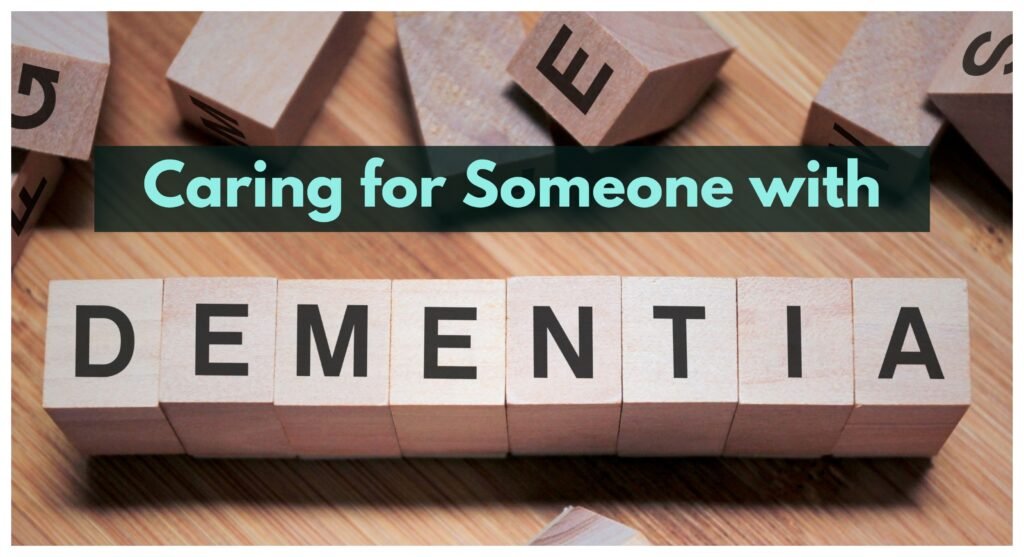Identifying Dementia Through 5 Big Behavior Changes

Last Updated on June 30, 2025 by George
When most people think about dementia, they immediately picture someone forgetting names or misplacing items. But dementia is far more complex than simple forgetfulness. For those watching a loved one navigate the challenging journey of cognitive decline, understanding the behavioral changes can provide crucial early insights. Behavioral shifts—especially those appearing after age 50—often serve as important indicators of dementia long before a clinical diagnosis occurs.
These behavioral changes aren’t random; they represent significant alterations in how the brain processes information and regulates emotions. From subtle shifts in social judgment to dramatic mood swings, these behavioral markers offer a window into cognitive changes that might otherwise go unrecognized. By learning to identify these five key behavioral changes—apathy, emotional instability, impulse control issues, inappropriate social behavior, and unusual thought patterns—families and healthcare providers can seek timely intervention, potentially improving quality of life and care planning.
This comprehensive guide will help you understand these behavioral shifts not just as symptoms to be managed, but as communications from a brain that’s changing. With empathy and knowledge, we can transform how we support those experiencing cognitive decline, creating environments that foster dignity, understanding, and connection.
The Subtle Signals: Early Behavioral Signs of Dementia
Early detection of dementia relies heavily on noticing behavioral nuances that precede a formal diagnosis. Dr. Jennifer Gómez, neurologist at Mayo Clinic, emphasizes that “behavior changes often appear 2-3 years before memory problems become apparent enough for clinical attention.”

While normal aging brings certain changes, specific behavioral shifts stand out as potential warning signs of cognitive decline. Think of these changes not as definitive diagnoses but as important signals warranting closer attention.
When observing behavioral changes, consider both their nature and context. Are these new behaviors? Have they developed gradually or appeared suddenly? The person experiencing these alterations may oscillate between awareness and denial, making the situation especially challenging for family members.
Prefer to listen rather than read?
Understanding the Connection Between Behavior and Brain Changes
Dementia can feel like trying to solve a complex puzzle with missing pieces. To simplify this: imagine your brain as an intricate highway system with thoughts, memories, and actions flowing along unique neural pathways. Now picture dementia as roadblocks appearing unexpectedly on these once-smooth roads.
Just as detours disrupt traffic flow, these neural obstacles interrupt normal thought processes and behaviors. Dr. Michael Rafii, Associate Professor of Neurology at USC, explains: “The behavioral changes we see in dementia aren’t simply personality quirks—they’re direct reflections of structural and chemical changes occurring in specific brain regions.”
When certain neural pathways become blocked (a metaphor for the brain changes in dementia), everyday routes—our typical behaviors—cannot be taken. This forces the brain to use alternative, often less efficient pathways, resulting in noticeable behavioral shifts.
What makes this particularly challenging is understanding that these shifts aren’t simply reactions to frustration—they’re often caused by the progressive neural changes themselves.

1. Lack of Interest and Enthusiasm (Apathy)
One of the earliest and most frequently overlooked signs of dementia is a gradual withdrawal from activities and interests that once brought joy. This isn’t typical “slowing down” that comes with aging—it’s a more profound disconnection from passion and engagement.
Have you noticed a loved one becoming increasingly disinterested in hobbies they once pursued enthusiastically? Perhaps they’ve stopped mentioning future plans or no longer show excitement about family gatherings.
“Apathy in dementia isn’t laziness or depression, though it can resemble both,” notes Dr. Sarah Thompson, geriatric psychiatrist. “It stems from changes in the frontal lobe that affect motivation and initiative.”
When observing potential apathy, look for:
- Decreased interest in starting conversations or activities
- Reduced emotional responses to good or bad news
- Loss of enthusiasm for previously enjoyed hobbies
- Diminished curiosity about family events or surroundings
This gradual fading of engagement can be heartbreaking to witness. It’s like watching a vivid, colorful painting slowly losing its brightness. The person isn’t choosing this disconnection—their brain is experiencing changes that affect their ability to feel excitement and motivation.

2. Emotional Instability
Emotional changes can be significant indicators when identifying potential dementia. Imagine a friend who was typically even-tempered suddenly becoming tearful or agitated over minor everyday frustrations like misplaced keys or changes in routine.
“Emotional dysregulation in dementia results from damage to brain regions that normally help us modulate our feelings,” explains Dr. Rebecca Chen, neuropsychologist. “The brain loses its emotional ‘shock absorbers,’ leading to reactions that may seem disproportionate.”
These emotional shifts might appear as:
- Unexpected tearfulness or sadness without clear triggers
- Rapidly shifting moods—from calm to agitated in moments
- Increased anxiety about routine activities
- Emotional responses are inappropriate to the situation
Being aware of these changes can be crucial for early identification. If you notice someone cycling through emotions more rapidly than before, or having emotional responses that seem out of character, it may be worth discussing with a healthcare provider.
Remember, these emotional changes aren’t within the person’s control. The brain’s ability to process emotions changes with dementia, making feelings more intense and harder to manage.
3. Impulse Control Difficulties
Have you ever witnessed someone making uncharacteristically hasty decisions or speaking without their usual social filters? Changes in impulse control can be telling signs of cognitive changes.
When exploring impulse control issues, we’re essentially looking at situations where someone acts without the protective filter of forethought or consideration of consequences. It’s not simply a want or desire—it becomes an unbridled “need” that propels actions regardless of appropriateness.
People experiencing dementia-related impulse control problems might:
- Make significant financial decisions without their usual deliberation
- Speak bluntly or rudely in situations where they previously would have been tactful
- Show difficulty waiting their turn in conversations or activities
- Develop new habits like hoarding items or collecting things compulsively
Dr. James Barton, geriatrician, notes that “impulse control changes often cause significant distress for families because they represent such a departure from the person’s lifelong values and social awareness.”
Understanding impulse control issues requires recognizing that the brain’s “pause button”—its ability to stop and consider consequences before acting—isn’t functioning as it once did. With compassion and appropriate environmental adaptations, many of these challenges can be managed more effectively.

4. Inappropriate Social Behavior
Social behavior operates like an unspoken language with rules and cues we internalize throughout our lives. As cognitive changes occur, this social awareness can begin to unravel in subtle but noticeable ways.
When someone begins showing signs of inappropriate social behavior, it may appear as:
- Sharing overly personal information with strangers
- Disregarding personal space or boundaries
- Making uncharacteristic comments that lack empathy
- Behaving in ways that don’t match the social setting (like dressing inappropriately for occasions)
“Social appropriateness requires integrating multiple brain functions simultaneously,” explains Dr. Elaine Rivera, social neuroscientist. “We must remember social rules, read others’ emotions, inhibit inappropriate responses, and generate appropriate ones—all complex tasks affected by dementia.”
If you notice someone who has always been socially graceful beginning to miss social cues or act in ways that seem out of character, approach the situation with understanding rather than embarrassment. These changes reflect brain function alterations, not personality flaws or intentional rudeness.

5. Unusual Thought Patterns or Perceptions
While everyone has unique thought processes, dementia can introduce distinctive patterns that represent significant departures from a person’s typical thinking. These changes might manifest as:
- Developing suspicious thoughts about family members’ intentions
- Expressing beliefs that seem disconnected from reality
- Misinterpreting everyday situations as threatening
- Reporting seeing or hearing things others don’t perceive
These thought pattern changes stem from the brain’s decreasing ability to accurately interpret sensory information and connect it appropriately with memories and context.
Dr. Thomas Lee, neurologist, emphasizes that “unusual thought patterns in dementia aren’t psychiatric illnesses like schizophrenia—they’re the result of a brain struggling to organize and interpret information with damaged neural networks.”
Approaching these situations requires tremendous sensitivity. Rather than arguing about the reality of their perceptions, focus on the emotions behind them. A person who believes someone is stealing their belongings might really be expressing fear about losing control or independence.
Innovative Approaches for Supporting Behavioral Changes
Navigating dementia’s behavioral changes requires compassion, patience, and creative problem-solving. Rather than viewing these changes as problems to manage, consider them as communications from someone whose brain is processing information differently.
“The goal isn’t to ‘fix’ the person with dementia,” advises Dr. Maria Santiago, geriatric care specialist. “Instead, we need to adapt our approach and environment to meet their changing needs.”
Effective strategies often include:
- Creating consistent daily routines that provide security and predictability
- Simplifying the environment to reduce overstimulation
- Using validation rather than correction when addressing confused thoughts
- Focusing on the emotion behind behaviors rather than the behaviors themselves
- Maintaining connections through music, touch, and shared activities that don’t rely heavily on memory
These approaches recognize that while cognitive abilities may change, the need for dignity, connection, and understanding remains constant.
The Journey Forward: Understanding Dementia as a Shared Path
Identifying dementia through behavioral changes isn’t just about spotting symptoms—it’s about understanding the person behind those symptoms and walking alongside them with compassion and knowledge.
In a world where cognitive decline often carries stigma and fear, recognizing dementia early becomes our shared responsibility. With early identification, appropriate interventions, and supportive communities, people experiencing dementia can maintain quality of life and meaningful connections much longer than many realize.
Remember that dementia affects each person uniquely. The behavioral changes described here aren’t a checklist to diagnose, but rather signposts that might indicate a need for professional assessment. Always consult healthcare providers for proper evaluation and guidance.
An Ongoing Quest in Understanding and Managing Dementia
In a world where every step forward in dementia care is a victory, identifying dementia early becomes our shared mission, and guiding those affected by it with empathy and expertise becomes our shared responsibility.
Have you noticed any of these behavioral changes in someone you care about? Or perhaps you’ve developed creative ways to support a loved one showing these signs? Your experiences and insights are invaluable to our community of caregivers and families navigating similar journeys. Please share your thoughts or questions in the comments below—your contribution might be exactly what another reader needs to hear today.
Frequently Asked Questions About Dementia-Related Behavioral Changes
- How can I tell if behavioral changes are due to dementia or just normal aging?
- Normal aging might bring mild forgetfulness or occasionally misplacing items, but significant changes in personality, social judgment, emotional regulation, or thought patterns typically aren’t part of normal aging. If behavioral changes interfere with daily functioning or represent a marked departure from someone’s lifelong personality, it’s worth consulting a healthcare provider.
- Are all types of dementia associated with behavioral changes?
- Yes, though the specific behavioral changes may vary depending on the type of dementia and which brain regions are affected first. For example, frontotemporal dementia often presents with more dramatic personality and behavior changes early on, while Alzheimer’s might initially show more memory problems before behavioral symptoms become apparent.
- How should I respond when a loved one with dementia exhibits inappropriate social behavior?
- First, try to stay calm and avoid showing embarrassment or anger, which can increase their distress. Gently redirect the conversation or activity if possible. Remember that the behavior isn’t intentional—it’s caused by brain changes beyond their control. In public settings, a simple, brief explanation to others such as “My mother has dementia” can help create understanding.
- Can medications help manage difficult behavioral symptoms of dementia?
- While some medications can help in certain situations, they’re typically not the first approach and carry risks, especially in older adults. Non-pharmacological approaches—like establishing routines, creating a calm environment, and using validation techniques—are generally recommended as initial strategies. Always consult with healthcare providers about the risks and benefits of medication for specific symptoms.
- Is it possible for someone to have dementia without showing any behavioral changes?
- It’s rare for someone with progressing dementia to show no behavioral changes whatsoever, but the nature and extent of these changes vary considerably from person to person. Some individuals may exhibit more subtle changes that might not be immediately recognized as related to dementia, especially by those who don’t see them regularly.
- How do I know when it’s time to seek professional help for behavioral changes?
- Consider seeking professional evaluation when you notice: consistent patterns (not just occasional incidents), changes that represent a departure from the person’s lifelong personality, behaviors that pose safety risks, signs of depression or anxiety, or when your intuition tells you something is wrong. Early assessment often leads to better outcomes and appropriate support.
- How do I approach a loved one about concerning behavioral changes I’ve noticed?
- Choose a quiet, private moment when you’re both relaxed. Express your concerns with “I” statements rather than accusations: “I’ve noticed you seem less interested in gardening lately” rather than “You don’t do anything anymore.” Focus on care and support rather than diagnosis: “I’d like us to talk with your doctor about how you’ve been feeling” rather than “I think you have dementia.”
REFERENCES
- Alzheimer’s Association. (2023). “2023 Alzheimer’s Disease Facts and Figures.” Alzheimer’s & Dementia, 19(4).
- Ismail, Z., et al. (2022). “Neuropsychiatric symptoms as early manifestations of emergent dementia: Provisional diagnostic criteria for mild behavioral impairment.” Alzheimer’s & Dementia, 18(3), 552-568.
- Taragano, F. E., et al. (2023). “Recommended Measures for the Assessment of Behavioral Disturbances Associated With Dementia” American Journal of Geriatric Psychiatry, 31(1), 34-45.
- National Institute on Aging. (2023). “Alzheimer’s and Dementia.”
- Brodaty, H., & Arasaratnam, C. (2022). “Do caregiver interventions improve outcomes in relatives with dementia and mild cognitive impairment? A comprehensive systematic review and meta-analysis.”
- World Health Organization. (2022). “Dementia.” WHO Press.
Disclaimer
The content provided on MySeniors.World is for informational purposes only and is not intended as either financial or medical advice. Always consult a qualified professional before making any investment or health-related decisions.
Posts may contain affiliate links, meaning we earn a commission – at no additional cost to you, if you click through and make a purchase. Your support helps us continue providing valuable content.





